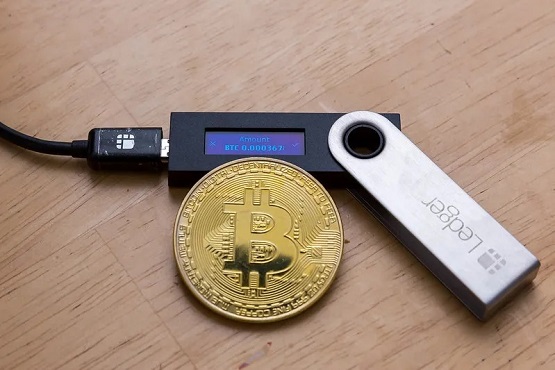There is a significant rise in people joining the crypto realm every day, mainly through online exchange platforms. Every coin is stored in one of two means: hardware or software wallets. The hardware and the software wallets will offer you the facility of storing and using the coins with complete safety. A new user is bound to get confused, and hence an understanding of the main difference between the two will assist you in deciding the type of wallet that is best for you.

The focus of this blog is to review every benefit associated with hardware and software wallets. It will help you in selecting one that will meet your needs!
Table of Contents
Overview of hardware wallets
In the crypto world, hardware wallets are also termed cold wallets. The cold storage wallets will not need any online servers, and the assets can be stored in the wallet, mainly the physical devices. The software program included in this wallet allows their users to protect their assets offline, allowing proper access through a private key which is once a device that is connected to the primary computing device or system.
Cyber-attacks can be prevented as the assets are not stored offline or on any online servers. This storage will add greater security to assets as they cannot access the third party over the Internet. No third party is involved in the hardware wallet dictating the transactions and even accessing the user’s transaction history.
Selecting a hardware wallet
The hardware wallets will contain many security features for safeguarding your keys to digital currency. They are safeguarded by a 4-8 digit PIN, including other forms of security that include a screen to view the details of the transaction and the buttons on the device to verify transactions manually. While these wallets are going to store the private key, you have to keep it secured. In case of malfunctioning or damage to the hardware wallet, there are options that let you recover the key.
Comparing the Hardware wallets
There are mainly two distinct parts of the hardware wallet. The initial part is a desktop, web client, or mobile connected to the Internet, and it performs all the basic aspects of the ordinary hot wallet.
The software wallet creates all the transactions but will not be signing them, and this is the other part. The physical hardware wallets consist of private keys, and the transaction should be sent to the offline hardware wallet that you will verify and is signed by the device before its completion.
Overall, a hardware wallet stores digital assets offline, and it is the ideal way to select among the other crypto wallets. You should always select the best wallet from a trustworthy provider and boost your crypto storage options over the other mobile wallets.
Overview of software wallets
The software wallet is the kind of digital wallet that stores your data and the transactions on a mobile device. The software wallets can be downloaded in the form of apps on phones and other devices.
The software wallet consists of the public and private keys that aid the users in accessing their wallets, allowing other users over the cryptocurrency market to hold transactions along with a user. Your assets are safe against every security breach with the help of private keys and a two-step verification process.
The users can store their crypto coins without worrying about their safety, although most wallets on various crypto exchange platforms are often subjected to hacking. The Blockchain ensures that the data is safe and free from any theft or breach attempt.
The software wallet can be used free in most exchanges, while your choices differ between a self-custody and hosted wallet.
If you are willing to start transacting using these wallets, click here to see a deep analysis of bitcoin trading.
Final Verdict
Several cryptocurrency exchanges and platforms offer a variety of hardware and software wallets. The main choice depends mainly on the user’s business plan that helps to choose the kind of wallet.
Hardware wallets have a limited scope and are secure, and the software wallet is easily accessible and more convenient than the hardware ones. There are different kinds of wallets and methods of accessing them, but the selection of a wallet depends mainly on security, purpose, and user-friendliness features at cost-effective prices.






